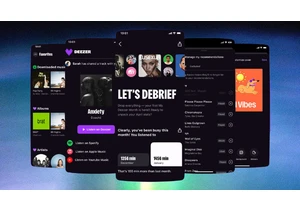Go into any restaurant or coffee shop, and you’ll see a familiar scene: Individuals or groups of people seated around tables, holding a beverage in one hand, shoulders and backs crouched forward as they scroll on their smartphones with the other. (Bonus points if they’ve got wireless earphones in.) This would appear to be the antithesis of mindful eating. But with the recent explosion of mindfulness and meditation techniques, it may be that utilizing our smartphones can help us find ways to engage more with our food, rather than further distracting our minds. Utilizing our phones may be a critical step in developing more mindful eating habits. As a nutritional psychiatrist, I believe there are ways to use the powers of technology for good: good foods and better moods, that is! Mindfulness apps Mindful eating is one skill under the broader arc of mindful activity—that is, engaging in our day-to-day work (or relaxation) with nonjudgmental, moment-to-moment awareness. What I find so appealing about mindfulness is that it can apply in any scenario of day-to-day life and doesn’t require that we carve out hours of extra time to develop this sense of calm, grounded focus. There are numerous mobile applications in existence that provide daily, weekly, or even month-long, bite-size practices to help develop your mindfulness and have research to back up their mood-improving outcomes. Meditation apps, like Chopra and Calm, come to mind. My own Mindful Eating feature with Whole Foods on Headspace is one of my favorite applications (and their graphic animations are just the cutest). Audio and video support Many applications like these also offer guided mindful eating meditation audios. There are also innumerable, accessible singles to be found on popular audio and video streaming platforms like YouTube and Spotify. Playing or streaming one of these from your device during a meal allows you to engage with mindful eating practices, whether you’re at home or on the go. For me, it could be while I’m in the bustling hospital cafeteria seeking out an antioxidant boost from green tea. Notification management apps I couldn’t write about mindful eating and not make mention of distracting tech. There are certain situations where phones can pull our minds far away from our food into the rabbit holes of email, texts, or clickbait articles (we’ve all been there, I promise). One easily reversible way to “disconnect” during mealtime is to turn on Do Not Disturb for the length of time you plan to sit down for your meal. You can set these to turn notifications back on after a certain period of time, so you won’t be unplugged for too long. Take this a step further by turning off needless pings, like social media notifications when someone likes a post, starts a live video, or is dancing on TikTok by going into your notification settings. Ah, peace and quiet! Progress tracking tools Our phones may be invaluable tools to cement our mindful eating habits. Using a mobile habit tracker allows you to document each increment of progress in real time, without having to carry around any other sort of tracker, like a notebook or planner. Documenting your momentum may help keep you motivated to continue eating mindfully, too. Research demonstrates that tracking your progress with regular check-ins actually increases the likelihood you’ll achieve your goals. Rather than pulling away from our phones, in an increasingly tech-driven world I think it’s vitally important to embrace the role our technology can play in developing healthier habits. By marrying mindfulness-development tools with strengthening our own sense of body intelligence, we pave the way to understand the relationship between our lifestyle, mental health, and overall well-being.
Dr. Uma Naidoo is a Harvard-trained nutritional psychiatrist, professional chef, nutrition specialist, and author of This is Your Brain on Food.
Login to add comment
Other posts in this group

Instagram has begun testing AI-powered technology designed to proactively identify accounts it suspects belong to teens—even if the user has listed an adult birthdate—and place them under special

Behind the curtain of generative AI breakthroughs and GPU hype, a quieter transformation is taking place. Data center architecture and its prowess have become a fierce battleground as AI models ex

Amid the video podcast boom, Netflix is making its own move into the space.

If real Easter eggs aren’t your thing this weekend, you may find hunting for digital ones more enjoyable. And there are some cool ones to find at your fingertips, provided you have an iPhone or Ma

With music streaming, users have gotten used to being at the mercy of algorithms. But French music streamer Deezer is making it easier for its subscribers to make the algorithm work for them.

Trying to get from point A to point B? If only it were that simple! With any manner of travel these days, you’ve got options: planes, trains, buses, ferries, and beyond. And finding the best

When Twitter cofounder and Medium founder Evan “Ev” Williams was planning his 50th birthday party, he didn’t know who to invite. Having spent more of his life building and scaling tech
